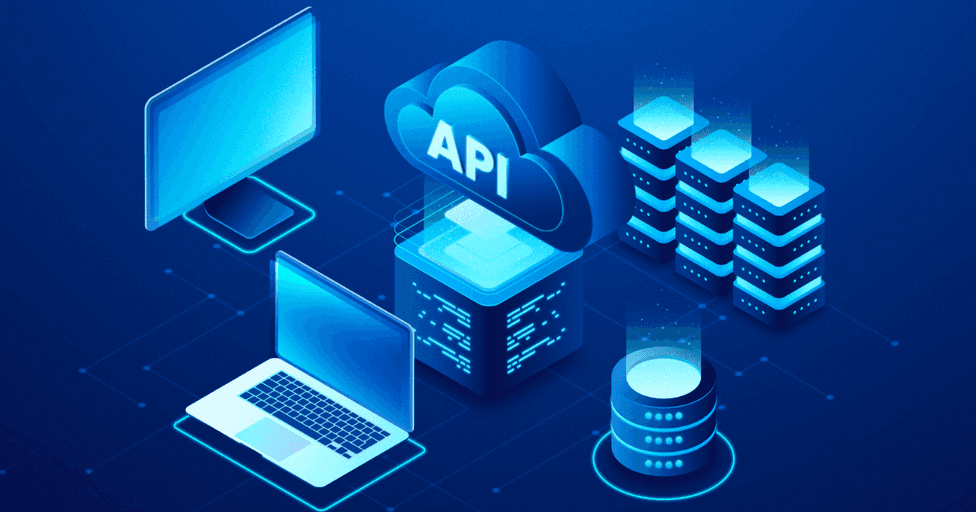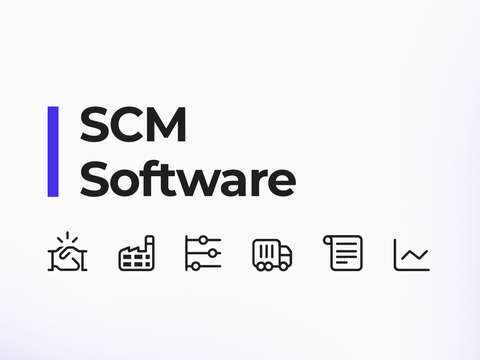In the dynamic world of eCommerce, IT teams are tasked with delivering a plethora of solutions, from seamless payment processing to efficient order fulfillment and post-purchase operations.
While numerous software solutions cater to these needs, a select few stand out for their exceptional eCommerce API integrations, enabling businesses to tailor operations to their specific requirements.
This article delves into the realm of powerful APIs, highlighting Outvio, Stripe, Amazon, and Google Shopping as exemplars of API-driven innovation and as some of the best ecommerce APIs available, indispensable for the growth of your online store.
1. Outvio, the best eCommerce API for post-purchase
Outvio's eCommerce API stands as one of the most sophisticated and efficient in its category. Crafted exclusively by developers to ensure a seamless and error-free integration, it empowers eCommerces to automate all post-purchase operations and tailor them to the specific requirements of each order. Furthermore, it guarantees a flawless and real-time exchange of information with carriers and any other associated platform.
With Outvio, your eCommerce gains access to the most advanced post-checkout features. You'll alleviate operational and logistical expenses, establish compelling post-sales marketing campaigns targeting intelligent audiences, fully automate returns and exchanges, and much more.
Some exceptional features of Outvio's API:
- The Shipping API establishes real-time connections with a diverse range of carriers, both national and international, automating the order processing cycle from start to finish. Additionally, this API ensures the integration of any additional transportation provider to the platform within a matter of days, expanding the scalability potential of your business.
- Outvio's Tracking API meticulously monitors any change in order statuses with pinpoint accuracy, enabling both the store and the customer to comprehensively track shipments. Thanks to this seamless flow, Outvio not only ensures an impeccable order experience but also empowers you to detect delivery anomalies and notify carriers even before they can identify the issue.
- The Returns API simplifies the management of returns and exchanges for eCommerces, allowing customers to initiate returns promptly and effortlessly. This, in turn, enables e-commerce businesses to minimize the costs associated with returns. Moreover, it grants buyers the freedom to exchange products, transforming returns into a competitive edge.
Outvio is a platform with really powerful pre-integration work. This means that in most cases, you don't need to use the Outvio API to connect it to your online store or other systems. You can enjoy all the features from minute one and without additional costs.
2. Google Shopping API integration for eCommerce to empower a solid search engine presence
Google Shopping, a product discovery platform, offers APIs that empower businesses to effectively market their products on Google search results. Developers can leverage Google Shopping's APIs to optimize product listings, enhance product visibility, optimize the effectiveness of their advertising campaigns and drive targeted traffic to their online stores. This integration ensures that businesses capture the attention of potential customers seeking their products.
The key benefits of the Google API include:
- Real-time inventory updates: This ensures that customers always have access to the most current product prices.
- Product feed generation: This functionality enables businesses to create product feeds that can be sent to Google Shopping and other channels, expanding their reach to a wider audience.
- Data collection: This feature empowers businesses to track the performance of their Google Ads campaigns. This data can be utilized to refine strategies and maximize the effectiveness of advertising investments.
3. Stripe, API integration for seamless payments in eCommerce
Stripe, a renowned payment processing platform, offers a comprehensive API that seamlessly integrates with various eCommerce solutions. Developers can leverage Stripe's API to handle credit card transactions, manage subscriptions, and facilitate secure payments. This integration eliminates the complexities of handling payments, allowing businesses to focus on their core operations.
Key benefits of the Stripe API:
- Allows businesses to accept a wide variety of payment methods, including credit cards, debit cards, PayPal, Apple Pay, Google Pay, and others
- Uses the latest security measures to rigorously safeguard customer payment data, ensuring the confidentiality and integrity of financial information
- Available in over 100 countries and currencies
4. Amazon, API for marketplace sellers with a global reach
Amazon, an e-commerce behemoth, provides a suite of APIs that enable businesses to seamlessly sell their products on its vast platform. Developers can utilize Amazon's APIs to manage product listings, process orders, and track inventory. This integration opens up a global market for businesses, expanding their reach and customer base.
Benefits of the Amazon API for eCommerce:
- Allows your prices to be displayed alongside Amazon's, helping to attract customers looking for the best deals
- Collects detailed information about the products purchased by each customer, enabling a better understanding of their needs and preferences
- Monitors the performance of advertising campaigns within the marketplace itself, providing key data for continuous optimization
The aforementioned examples showcase the transformative power of APIs in eCommerce SaaS. By embracing these powerful tools, IT teams can unleash innovative solutions that enhance efficiency, streamline operations, and expand market reach. As the eCommerce landscape continues to evolve, the demand for seamless API integrations will only grow, paving the way for a future of enhanced customer experiences and business growth.
Frequently asked questions
What is an eCommerce API?
An eCommerce API is a set of rules that enables efficient communication between computer systems in the eCommerce field. It facilitates the secure exchange of data, such as inventory, transactions, and transportation information, enabling more personalized shopping experiences and the processing of orders and returns.
How does an eCommerce API work?
An Application Programming Interface (API) is configured as a set of rules and protocols designed to facilitate the interaction between various software systems. It typically uses HTTP requests for the transmission and reception of data, using standard formats such as JSON or XML to structure the exchanged information.
What are the benefits of an eCommerce API?
eCommerce APIs play an essential role in the efficient management of eCommerce platforms. Their integration facilitates synchronization between various platforms, minimizing errors and operational problems. Additionally, these APIs are essential for improving the customer experience by enabling the personalization of eCommerce purchase interactions.
What types of APIs are there in eCommerce?
In the eCommerce field, there are several types of APIs designed for different specific functions. Some of the most common types include payment APIs, shipping and logistics APIs, inventory APIs, user experience APIs, social media APIs, email marketing APIs, or catalogs and product sheets APIs.
How to choose the best API for your eCommerce?
Choosing the best API for your eCommerce is a critical decision that can boost the growth and efficiency of your online business. By carefully evaluating the specific needs of your platform, the required level of scalability, your budget, and the vendor's track record, you can find the ideal API that fits your strategy and helps you achieve your business goals.
Start by exploring the available options, carefully compare their features, and establish a solid evaluation criteria to find the API that best suits your eCommerce.




